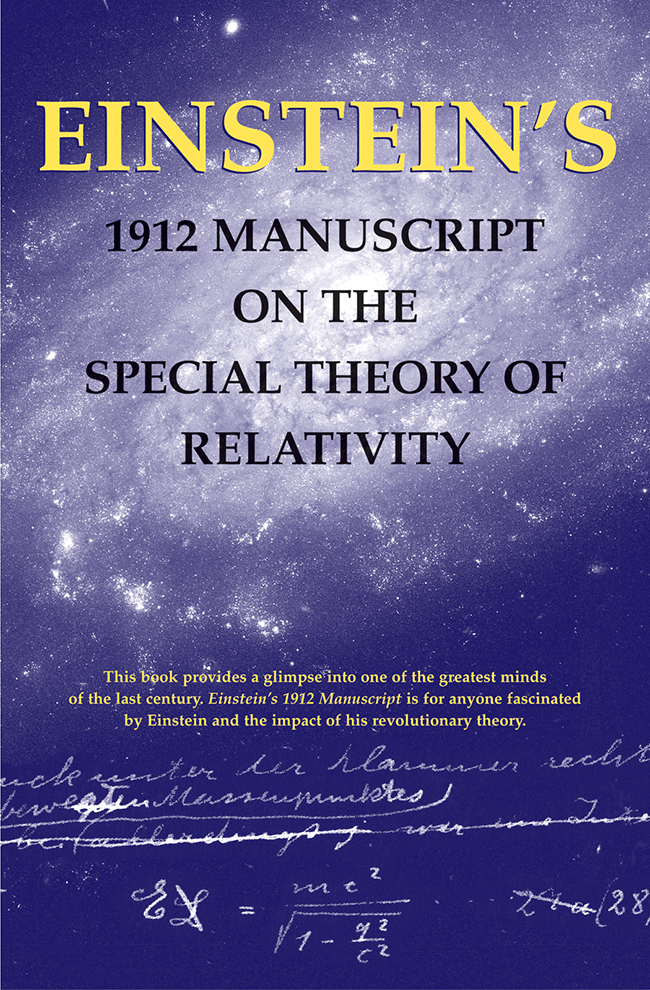
Einstein's 1912 Manuscript on the Theory of Relativity: A Facsimile
by Albert Einstein
July 17, 2006
Paperback, 151 pages
7.9 x 5.1 x 0.4 inches
ISBN-13: 978-0807615690
$15.95 (Can $17.95)
The influence of Einstein's contributions on so many branches of physics is such that if one wanted to describe its full extent, it would behard to know where to begin. His work and descoveries...are so fundamental that each achievement alone would have guaranteed him a prominent place inthe history of physics. But what brought him unprecedented fame outside his own discipline is undoubtedly his theory of relativity, which revolutionized the old, established Newtonian picture of space, time, and gravitations.
---Professor Hanoch Gutfreund, from the Introduction
Now in paperback, this volume presents Albert Einstein's 1912 manuscript on the special theory of relativity, one of the most revolutionary and influential scientific documents of the twentieth century. It includes faithful reproductions of each of the seventy-two handwritten pages along with an English translation of the original German text.
A tribute to Einstein's genius, the book opens with a brief essay by Hanoch Gutfreund, a chronology of Einstein's life, a selection of quotes by Einstein, and, to introduce the manuscript, a detailed description of the manuscript, its contents, publication history, and provenance. The manuscript pages themselves then follow, reproduced in full color, with the English translation facing each page.
Subtle variations in paper and ink are clearly visible in the excellent reproductions, indicating where and when Einstein drafted certain parts of it. Because the manuscript show extensive reworking, it reveals Einstein's thought processes more than any other of his handwritten works.
Einstein's 1912 Manuscript provides a glimpse into one of the greatest minds of the last century.
Albert Einstein (1879-1955) was born in Germany and became an American citizen in 1940. A world-famous theoretical physicist, he was awarded the 1921 Nobel Prize for Physics and is renowned for his Theory of Relativity. In addition to his scientific work, Einstein was an influential humanist who spoke widely about politics, ethics, and social causes. After leaving Europe, Einstein taught at Princeton University. His theories were instrumental in shaping the atomic age.
